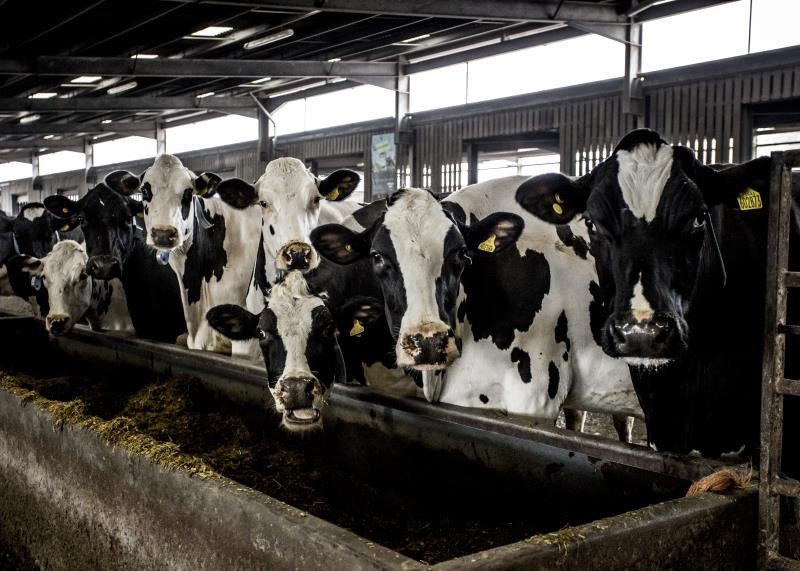Much of the focus has been on beef and lamb, and rightly so. The risks to many of our agricultural markets are huge, and the NFU is holding the line about the need for trade to ensure these sensitive markets are protected, as well as ensuring imports meet our high domestic standards of production and do not jeopardise the future of British family farms and their rural communities.
But where do British dairy farms stand in all of this? On the face of it, there doesn’t appear to be too much to be concerned about with free trade with Australia on dairy products. Although Australia does export a fair number of dairy products, it is predominantly commodity products into Asian markets, which account for around 85% of their exports. Cheese is the dominant export product (mostly fresh or cream cheese), along with milk powders and liquid milk (UHT). Given the competitiveness of our domestic dairy market, the UK is not likely to be an appealing market for the Australians. Their dairy production has also been under extreme challenge for the past few years, especially with the extreme drought conditions they have experienced.
There are also potentially some opportunities for British dairy to increase its access to the Australian market. The UK currently sends a small amount of cheese (£8m), butter (£2m) as well as some skim milk powder and whey to the Australian market. There is potential to export more premium cheese, especially high-end Cheddars, to Australia. Although the volume opportunity is small it could be at a high price. Tariffs on Cheddar are typically 1.22AU$/ kg (£0.67/kg), so eliminating this duty would be beneficial.
This is why the NFU dairy board is currently pulling together a dairy export strategy to help ensure we take advantage of new and emerging markets.
For dairy products specifically, there doesn’t appear to be the same threats from the deal as there perhaps is for some other commodities. But we do still have some major concerns about the implications of this deal for the UK dairy sector and there are plenty of reasons why, as a dairy farmer, I’m not happy with how this is playing out.

Setting a precedent
Firstly, there is the matter of precedence. This is one of the first big FTA negotiations since leaving the EU, and a litmus test for the UK as an independent trading nation. However, judging by the progress so far, the UK seems to be caving in on the few demands it had, giving away valuable access in return for very little, and has set an arbitrary deadline by which to do a deal, thus appearing to rush into it without considering the consequences.
This precedent is extremely concerning for dairy, mainly because of the negotiations that will follow Australia. The UK is already in discussions with New Zealand and I have no doubt that they will be asking for exactly the same that the Australians get in negotiations with the UK, and it is going to be very difficult for the UK to row back from that position. New Zealand is a serious dairy exporter – 95% of the approximately 21 billion litres of milk they produce a year is exported to 130 countries round the world, and they definitely have eyes on our market. And unlike Australia, where there is at least some opportunity for us to export there, New Zealand has a population of less than 5 million people and is around 90% self-sufficient in dairy – so there won’t be much in it for us.
A changing beef market will affect the dairy industry
The other big issue for our dairy sector in the Australian trade talks is beef. The fortunes of the dairy market are no doubt massively impacted by the performance of the beef market to underpin cull cow values, calf prices and stores. We have also made massive strides recently with the industry-led GB Calf Strategy, which aims to ensure that every calf born on a dairy farm has a good market and is reared with care. The prospect of our beef market being put under extra pressure, just as we are building up these new outlets for dairy bred calves is very concerning.

Other factors to consider
There are also some technical issues that need considering in the trade deal – details of which we have not yet seen and may take a while longer to sort out. Rules of Origin are important to help ensure the trade being done is from products made in those countries and it doesn’t become a back door for products from elsewhere being traded. For example, there is a risk that the Australian deal could allow dairy products from New Zealand milk to be processed or packed in Australia and then enter the UK tariff free.
Geographical Indicators (GIs) are also an important factor in the deal. They ensure protection for specific products, such as West Country Farmhouse Cheddar, or Yorkshire Wensleydale. The Australians have made it clear that they are not keen to see these names protected in trade deals and will fight against it which can lead to imitations of the products being allowed to be sold. The UK has more than 70 GIs on agricultural products and we believe ensuring they receive protection in any future trade deal must be a priority for the government.
In conclusion
Finally, it is important that we look at trade as a long-term prospect. It would be very easy to compare prices in each country or make assumptions about levels of production at this time. However, we must consider the long-term prospects and make sure trade deals give adequate consideration to this. New Zealand has doubled its milk production in the past 20 years to meet new export demands from emerging markets. We can’t take the status quo for granted and I believe that by rushing in to make a deal, we are not understanding these considerations or any economic modelling at all.
For the dairy sector, there is a lot to consider about our future trading relationships. There are things to be positive about; for example, the dairy export strategy being produced by the NFU dairy board examining how we can capitalise on new and emerging markets. However, in the short term we must hold the line on our asks around trade and standards. We must push back against the urge to rush in to ill-conceived deals for the sake of political point scoring. We must be united across all sectors as one British agricultural industry and hold our decision makers to account. And we will continue to ask the key questions which matter.
More from NFUonline:

